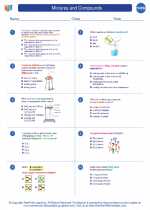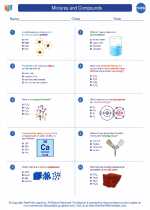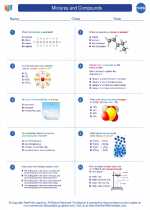Fungi
Fungi are a group of eukaryotic organisms that include microorganisms such as yeasts and molds, as well as macroscopic fungi such as mushrooms and truffles. They are a diverse group of organisms that play important roles in various ecosystems and have both beneficial and detrimental effects on human activities.
Characteristics of Fungi
- Cellular Structure: Fungi are made up of eukaryotic cells, which means they have a nucleus and other membrane-bound organelles.
- Reproduction: Fungi can reproduce both sexually and asexually. In sexual reproduction, they produce spores, while asexual reproduction can occur through processes such as budding and fragmentation.
- Nutrition: Fungi are heterotrophic organisms, meaning they obtain their nutrients by absorbing organic matter from their environment. They are known as decomposers, as they play a key role in breaking down dead organic material.
- Cell Wall: Fungi have cell walls made of chitin, a complex polysaccharide that provides structural support.
Types of Fungi
Fungi can be classified into several major groups, including:
- Ascomycota: Commonly known as sac fungi, this group includes yeasts, morels, and truffles.
- Basidiomycota: This group includes mushrooms, puffballs, and shelf fungi.
- Zygomycota: Commonly known as bread molds, this group includes fast-growing molds found on food items.
- Deuteromycota: Also known as imperfect fungi, this group includes fungi with no known sexual reproductive stage.
Ecological Roles of Fungi
Fungi play crucial ecological roles in various ecosystems:
- Decomposition: Fungi are the primary decomposers of organic matter, breaking down dead plants, animals, and other organic material, and returning essential nutrients to the soil.
- Symbiotic Relationships: Many fungi form symbiotic relationships with plants, such as mycorrhizal associations, in which they help plants absorb nutrients from the soil.
- Pathogens: Some fungi are plant and animal pathogens, causing diseases in crops, trees, and even humans and animals.
Human Uses and Impacts
Fungi have both beneficial and detrimental effects on human activities:
- Food Production: Fungi are used in the production of various foods and beverages, including bread, cheese, beer, and wine.
- Medicinal Uses: Many antibiotics, such as penicillin, are derived from fungi. Fungi also have potential applications in cancer treatment and drug development.
- Disease and Spoilage: Some fungi cause diseases in humans, animals, and plants, and contribute to the spoilage of food and other organic materials.
Study Guide
To study fungi effectively, consider the following:
- Learn the key characteristics of fungi, including their cellular structure, reproduction, and nutritional strategies.
- Understand the major groups of fungi, such as Ascomycota, Basidiomycota, Zygomycota, and Deuteromycota, and their distinguishing features.
- Explore the ecological roles of fungi, including decomposition, symbiotic relationships, and pathogenicity.
- Consider the human uses and impacts of fungi, including their roles in food production, medicine, and disease.
- Engage in hands-on activities such as observing fungal growth in laboratory settings or exploring the diversity of fungi in natural environments.
[Fungi] Related Worksheets and Study Guides:
.◂Chemistry Worksheets and Study Guides High School. Mixtures and Compounds
Worksheet/Answer key Mixtures and Compounds
Mixtures and Compounds  Worksheet/Answer key
Worksheet/Answer key Mixtures and Compounds
Mixtures and Compounds  Worksheet/Answer key
Worksheet/Answer key Mixtures and Compounds
Mixtures and Compounds 

 Worksheet/Answer key
Worksheet/Answer key
 Worksheet/Answer key
Worksheet/Answer key

The resources above cover the following skills:
Chemistry II
Properties of Matter
Develop and use models to explain the differences between chemical compounds using patterns as a method for identification.
Use mathematical representations to quantify matter through the analysis of patterns in chemical compounds.